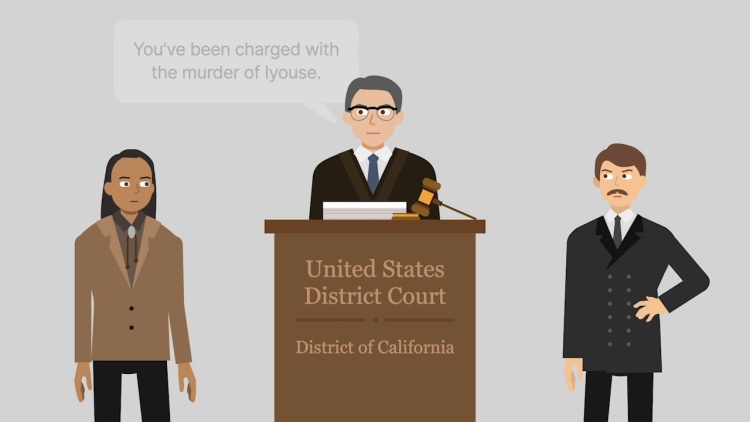United States v. Kagama
United States Supreme Court
118 U.S. 375, 6 S.Ct. 1109, 30 L.Ed. 228 (1886)
- Written by Lauren Groth, JD
Facts
In 1885, two Indian men, Kagama and Mahawama (defendants), were indicted for killing another Indian man. All three men were members of the Klamath Indian tribe, and the crime had taken place on the land in California where the tribe lived. Although this was an Indian-on-Indian crime, Kagama and Mahawama were charged federally under the Major Crimes Act of 1885 (Act). The Act provided that federal courts had jurisdiction over significant crimes, including murder, that were committed by one Indian against another Indian. In district court, Kagama and Mahawama contested this jurisdiction and argued that the Act should have been struck down because Congress did not have the power to pass the Act. The district court could not decide whether the Act was permitted by the Constitution and whether Congress had the power to extend federal jurisdiction to Indian-on-Indian crimes committed in Indian territory. The district court certified this division of opinion to the United States Supreme Court.
Rule of Law
Issue
Holding and Reasoning (Miller, J.)
What to do next…
Here's why 907,000 law students have relied on our case briefs:
- Written by law professors and practitioners, not other law students. 47,100 briefs, keyed to 996 casebooks. Top-notch customer support.
- The right amount of information, includes the facts, issues, rule of law, holding and reasoning, and any concurrences and dissents.
- Access in your classes, works on your mobile and tablet. Massive library of related video lessons and high quality multiple-choice questions.
- Easy to use, uniform format for every case brief. Written in plain English, not in legalese. Our briefs summarize and simplify; they don’t just repeat the court’s language.





